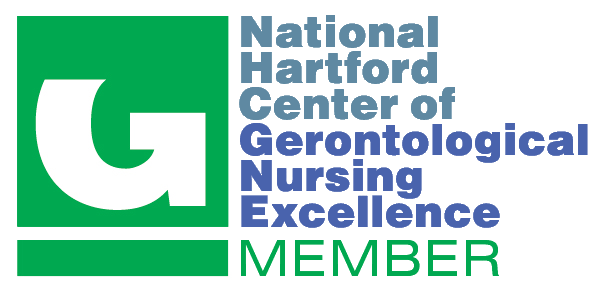Adult-Gerontology Acute Care Nurse Practitioner
Frequently Asked Questions
- What is the role of an Adult-Gerontology Acute Care Nurse Practitioner?
- Do I have to be a nurse to enter this specialty?
- Do I need RN work experience?
- How many students are accepted into this specialty each year?
- Does the school accept transfer credit?
- If I have an MSN degree, is there a post-master’s option?
- Can I work full-time and go to school full-time?
- Can I take this specialty via the modified distance learning format?
- What is the modified distance learning format?
- If I choose to take classes on campus, what will my schedule be like?
- Can I take this specialty part-time?
- What housing options are there for students participating in the modified distance format so they meet residency requirements?
- What is the specialty portion of the curriculum like?
- How many times do I need to visit campus?
- What are the "block weeks" like?
- What are the clinical requirements for the specialty?
- How do you match me with clinical preceptors?
- Can I subspecialize?
- Do I have to subspecialize?
- What will my credentials and certifications be?
- What is the VUSN pass rate for the certification exams?
- Will I earn my nursing license?
- Will I be able to get a job upon graduation?
- Can I earn a DNP?
What is the role of an Adult-Gerontology Acute Care Nurse Practitioner?
The role of the Adult-Gerontology Acute Care Nurse Practitioner (AGACNP) focuses on the assessment, diagnosing and treatment of acute/critically ill and clinically complex adult patients. With today’s focus on health care cost, many AGACNPs practice in specialty clinics. This allows adults and older adults who have ongoing complex health problems to be managed in clinic settings rather than in the hospital. Regardless of the setting, AGACNPs use their expert diagnostic reasoning skills to treat the patient as “a whole” and not as a diagnosis. Depending upon the setting, many AGACNPs work collaboratively with other health care team members to stabilize a patient, and then manage their care throughout the patient’s hospital or clinic course.
Do I have to be a nurse to enter the AGACNP specialty?
No. You can enter this specialty if you have a bachelor’s degree or higher in a field other than nursing by completing a one year full-time baccalaureate equivalent program (PreSpecialty Year - Clinical Experiences), and then progressing to the Adult-Gerontology Acute Care Nurse Practitioner specialty. If you have a BSN or MSN you enter directly into the specialty course work. All students, regardless of entry type, graduate with an MSN or post-master’s certificate.
Do I need RN work experience?
No. You can enter the specialty without RN experience.
How many students are accepted into this specialty each year?
We encourage you to apply to the specialty that meets your career interest rather than focus on the number of spaces available. We strongly recommended that you complete your application by the November priority deadline date to have a quicker decision response time and a greater chance of being admitted. The number of students offered admission can vary each year based on many factors. Typically, we admit about 60 students into this specialty each year.
Does the school accept transfer credit?
Matriculated students can transfer up to six semester credits of equivalent graduate level coursework from another accredited university to be applied toward the MSN. You must complete this petition and return, along with the course syllabus, to Sara Donahoe . Courses completed elsewhere must have been taken within the last five years. The decision is based on equivalent content (for required courses), credit allotment, and satisfactory completion of the courses.
If I have an MSN degree, is there a post-master’s option?
Yes. There is a post-master’s certificate in this specialty available to students who already possess an Advanced Nursing degree. It is strongly recommended that you apply to the Doctor of Nursing Practice (DNP) program and complete the post-master’s certificate as part of your DNP program of studies.
Can I work full-time and go to school full-time?
We strongly recommend that students do not attempt full-time school and full-time work. The few students who have successfully completed full-time school and work used flex time or accrued compensatory time to continue to work full-time. Some have used a Baylor plan (weekend shifts).
Can I take this specialty via the modified distance learning format?
If you are a BSN graduate with at least two years of RN experience, you are eligible for the distance learning format and do not need to give up employment or relocate to Nashville. If you are a BSN graduate without at least two years of experience, you must complete the entire program of studies in Nashville. If you do not have a prior nursing background, you must complete your first year on campus in Nashville before progressing to the specialty portion of your education which is taught in Nashville.
What is the modified distance learning format?
Modified distance learning specifically means that you will do a portion of your course work online via taped lectures and web conferencing to integrate the material. A portion of your work requires on-campus learning in blocks of time (including possible weekends), followed by seminar and online discussions. Where possible, you can do your clinical practicum experience in your home area.You will be in continuous contact with your professors throughout the specialty and in between sessions.
If I choose to take classes on campus, what will my schedule be like?
Classes that are offered on campus vary by semester. They are typically offered Monday through Friday during daytime hours. Electives may be offered in the late afternoons depending upon the course.
Can I take this specialty part-time?
Yes, however you are required to follow a pre-determined program of studies. Length of time to complete the entire specialty varies depending on your background prior to VUSN enrollment. If you are not a nurse, the first year is only offered full-time. You can request to change to part-time for the specialty components of your MSN. ( part-time curriculum plans)
What housing options are there for students participating in the modified distance format so they meet residency requirements?
Our Admissions Office has a listing of hotels nearby the VUSN campus and students usually “buddy” to share low cost hotel rooms. Some students stay with local classmates.
What is the specialty portion of the curriculum like?
Our curriculum includes an acute care physiology course, a pharmacology course and three pathophysiology and collaborative management courses. In addition, our curriculum has its own advanced health assessment and diagnostic reasoning course and three clinical courses. For those who are new RNs, the didactic classes are taken on campus. For students who are experienced RNs, the courses may be taken via live stream video or as archived lectures. Experienced RNs are also always welcome to attend the classes in person. For new RNs, clinical rotations will be arranged both at Vanderbilt and at other surrounding medical centers. For experienced RNs, clinical rotations may be completed in their home area if qualified preceptors are available. For these students, the modified distance format requires them to come to campus approximately three to four times each semester for three day periods of simulations, check offs and clinical conferences.
How many times do I need to visit campus?
If you are an experienced RN and wish to do your graduate studies in a modified distance option, you will be on campus four times in the fall, three times in the spring and twice in the summer. Each on campus “block” time is approximately three to four days, depending upon specific activities planned for each block session. Block dates are posted well in advance, so students who live at a distance will be able to make travel and housing accommodations. Attendance at all on-campus “block” sessions is mandatory for full time students and all part time students who are entering their clinical year of study.
What are the "block weeks" like?
Block weeks are intensive on-campus immersion experiences where you will work face-to-face with program faculty in applying core concepts of the AGACNP role, as well as developing advanced practice skills most often used in AGACNP practice. We offer a variety of experiences during block weeks, including live class sessions, guest lectures, clinical experiences, an advanced cardiac life support (ACLS) certification course, an introduction to point-of-care ultrasound workshop, advanced procedural training including simulators (task trainers) and a procedural cadaver lab, high fidelity simulations, and professional development and career planning workshops. Because we offer a variety of experiences during block weeks, the length of individual block weeks will vary. Dates requiring on-campus attendance are posted well in advance, so you’ll be able to make travel plans early.
What are the clinical requirements for this specialty?
Vanderbilt University School of Nursing requires 630 clinical hours for completion of the AGACNP degree. Seventy of the hours are included in the Fall semester; Spring and Summer semesters each require 280 clock hours of clinical.
How do you match me with a clinical preceptor?
The key to a student’s success in the distance format is a clinical placement with a qualified preceptor who is supporting and willing to mentor the student. We view clinical placements as a required and integral part of your education. Faculty work diligently to match you with appropriate preceptors so you can learn from clinical mentors and start applying your new skills and knowledge. We make every reasonable effort to accommodate a student’s placement request. Your specialty director will provide more information to assist you.
Can I subspecialize?
Yes. You need to get specialty director approval to determine its appropriateness for this specialty and to ensure preceptor availability. There are a number of subspecialties available including cardiology, cardiac surgery, critical care, diabetes and endocrine disorders, nephrology, oncology, orthopedics, pulmonology, palliative care, sports medicine, hospitalist, transplantation, and trauma. Our program offers several electives that complement these clinical areas. If you choose to subspecialize, one of your clinical experiences, in either the spring or summer, will be in that focus area..
Do I have to subspecialize?
No.
What will my credentials and certifications be?
Graduation from this MSN specialty prepares you to take the national Adult Gerontology Acute Care Nurse Practitioner certification exam offered by either the American Nurses Credentialing Center (ANCC) or the American Association of Critical Care Nurses (AACN). Passage of the national certification exam is required in most states to obtain a license as an advanced practice nurse.
What is the VUSN student pass rate on the certification exams?
Everyone will be well prepared for the certification exams as our students typically score well above national averages on these exams. For specific information, click here.
Will I earn my nursing license?
If you enter without a nursing degree, you will take the NCLEX to obtain your Tennessee RN license after your first year of study.
Will I be able to get a job upon graduation?
Adult-Gerontology Acute Care Nurse Practitioners in high demand and are well-qualified to meet the growing health care demands of patients in a variety of settings such as cardiology, trauma, neurology and many other subspecialties. As AGACNP, you will be well prepared to collaboratively manage complex patients both in the hospital setting as well as in clinics. You will be in a great position to respond to the growing health care needs of our nation.
Can I earn a DNP?
Yes! Our both the MSN and Post-master’s certificate programs are designed for you to seamlessly transition to our DNP program. After successful completion of one semester of the specialty year curriculum, you complete an abbreviated application to indicate your interest in progressing to the DNP program; no additional application fee is required. Either you can progress directly into the DNP program or you can take a gap year to work as an APRN before starting the DNP program. The advantage of earning the MSN degree before the DNP degree is that you will be able to work as an APRN during your DNP program. The DNP program is designed for APRNs who are working full or part time. See DNP program details at https://nursing.vanderbilt.edu/dnp/index.php




